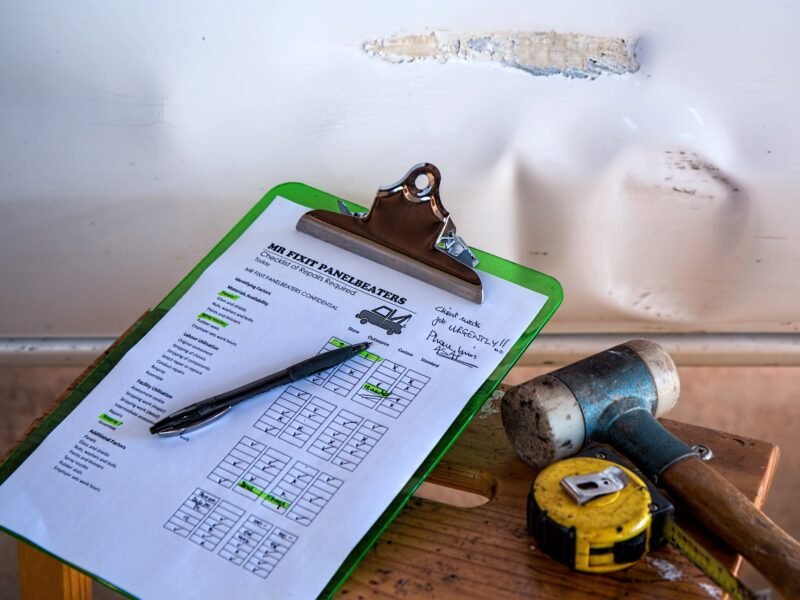An Overview
A tax and insurance-inclusive mortgage calculator is a must-have for anyone who is thinking about buying a home. It will give a full analysis of the monthly mortgage payment, not just the principal and interest on the loan, but also the property taxes and homeowner’s insurance. These extra charges are often overlooked by most first-time homebuyers, but they will have a significant impact on how affordable a home is. Knowing how each of these factors interacts is valuable in making wise financial choices.
What is a Mortgage Calculator?
A mortgage calculator is a computer program on the internet that assists prospective homebuyers in estimating their monthly mortgage payment. Essentially, it computes the interest and principal payments from the loan amount, interest rate, and loan term. But a more sophisticated mortgage calculator will also factor in property taxes, homeowners insurance, and, in some instances, private mortgage insurance (PMI) or homeowners association (HOA) fees. This more comprehensive method gives a truer picture of the overall monthly housing expense.
Most Crucial Components of a Mortgage Payment
1. Principal: Amount of cash advanced to purchase the home. Each payment reduces the amount of principal.
2. Interest: Price of borrowing money, as a percentage of the borrowed amount. Interest rates are fixed or variable, depending on the mortgage.
3. Property Taxes: Property taxes are levied by local governments to pay for public services such as schools, roads, and emergency services. These taxes are usually calculated as a percentage of the value of the home and can differ widely based on location.
4. Homeowners Insurance: The homeowner’s insurance insures the homeowner against loss within the property and liability for damage and injury to the property. The homeowners’ insurance is necessitated by lenders so they can secure their interest in the property.
5. Private Mortgage Insurance (PMI): If the down payment is not 20% or more of the home purchase price, lenders will typically ask for PMI. PMI covers the lender against loss if the borrower cannot pay back the loan.
6. HOA Fees: If the house is part of a homeowners association, monthly or annual fees to cover maintenance and amenities may be required.
How Taxes and Insurance Impact Mortgage Payments
Homeowners insurance and property taxes are typically packaged into the monthly mortgage payment in an escrow account. The lender collects these funds each month and makes payments when due on the homeowner’s behalf. This keeps these important expenses current and keeps homeowners from needing to make huge, lump-sum payments.
Property Taxes
Property taxes are a significant cost for homeowners and are extremely volatile depending on the location of the property. For example, a home in a high-tax state like New Jersey or Illinois might pay hundreds of dollars more annually in property taxes than a home in a low-tax state like Alabama or Hawaii. When computing the mortgage with a mortgage calculator, it is important to enter the correct property tax rate for the area where the house is. This rate is usually in the form of a percentage of the home’s assessed value.
Homeowners Insurance
Homeowners insurance rates are determined by the location, size, age, and type of construction of the home, as well as deductible and amount of coverage. Homes in regions that are more vulnerable to natural disasters, such as hurricanes or wildfires, may have higher insurance premiums. An insurance mortgage calculator will ask for an estimate of the annual premium, which can be given by insurance companies.
How to Utilize a Mortgage Calculator with Taxes and Insurance
Using a mortgage calculator with taxes and insurance is simple. The following is a step-by-step guide:
1. Enter Home Price: Type in the cost of money spent on the house.
2. Down Payment: Specify the down payment as dollars or as a percentage of home price.
3. Loan Term: Choose the duration of the loan, typically 15 or 30 years.
4. Interest Rate: Enter the expected interest rate on the home loan.
5. Property Taxes: Enter the yearly property tax payment or tax rate for the area.
6. Homeowners Insurance: Enter the estimated annual insurance premium.
7. PMI (if required): If the down payment is less than 20%, include the PMI fee.
8. HOA Fees (if required): Include any monthly HOA fees.
After entering the information, the calculator will provide an estimated monthly mortgage payment broken down into principal, interest, taxes, and insurance (commonly referred to as PITI).
The Beauty/advantages of Using a Mortgage Calculator with Taxes and Insurance
1. Accurate Budgeting: The addition of taxes and insurance enables the calculator to provide a more accurate figure of the total monthly price of housing. This will inform the buyer of what house they can actually afford.
2. Shopping Comparison: The buyer can use the calculator to shop around and compare different loan choices, interest rates, and down payment to figure out the best value.
3. Financial Planning: Being aware of the overall homeownership cost enables customers to budget for other expenses such as maintenance, utilities, and savings.
4. Surprise Elimination: New homeowners are usually surprised by additional insurance and tax charges. Using an accurate calculator, no surprise charge.
Disadvantages of Mortgage Calculators
Mortgage calculators are great tools, but nothing is perfect:
1. Estimates and Not True Costs: The result estimates and is not completely consistent. Insurance and property taxes vary.
2. Additional Costs: Calculators do not factor in additional homeowners’ expenses, e.g., utilities, upkeep, or repairs.
3. Credit Score Impact: The calculator takes a reported interest rate, but the real rate varies based on the borrower’s credit score and record, which governs the true interest paid.
Tips on Using a Mortgage Calculator Properly
1. Obtain Local Tax Rates: Real property tax rates vary geographically. Obtain the proper rates from the local tax assessor’s office.
2. Obtain Insurance Quotes: Call multiple insurance companies to get actual estimates for homeowners insurance.
3. Factor in Future Increases: Property taxes and insurance premiums increase over time. Factor in potential increases when budgeting.
4. Use Several Calculators: Different calculators use slightly different equations. Having multiple tools will provide a range of estimates.
Conclusion
A mortgage calculator that also considers taxes and insurance is an invaluable tool for a person considering home purchase. It provides a better estimate of the combined monthly mortgage cost, enabling consumers to make more reasonable decisions on affordability and budget. Knowing how homeowner insurance, property taxes, and other costs play a role in the transaction gives homebuyers an opportunity to avoid money shocks and be prepared for a smooth house purchase. While mortgage calculators are by no means perfect, they make sense as the place for newbies to start this intimidating exercise in home financing.






